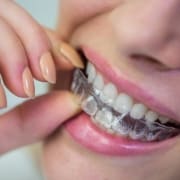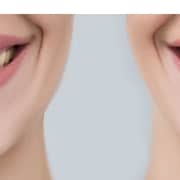3 Benefits of a Bite Plane
Because a bite plane has multiple benefits, it might be recommended for any number of reasons. If you’re on the fence about whether this is a solution for you, we’ll look at what it does and why you might consider wearing one.
1. Stops Teeth Grinding (Bruxism)
Life can get stressful sometimes, and unfortunately, you can feel it both during the day and at night. The bite plane is a barrier between your teeth, making it impossible for them to come into contact with one another. If you or your dentist in Bellbrook, OH, is starting to see wear and tear on your teeth, a bite plane can be the key to preventing any further damage.
2. Relieves Pain
If you have either TMJ or bruxism in Bellbrook, OH, you likely already know that your jaw can get tender. What you might not connect to the condition, though, is how these two conditions can contribute to your headaches or earaches. A bite plane can potentially alleviate the stress on your jaw, which can reduce the overall tension in your face. You might be surprised at the difference you feel after even a few weeks of wearing it.
3. Improves Sleep Quality
If you’ve found yourself waking up constantly throughout the night, the answer might be because you’re grinding your teeth. It’s true that a bite plane can’t address all the issues that might be behind the teeth grinding, but it may be able to give you enough sleep so you can face the pressure the next day. Bite planes are popular solutions not just because they’re effective at what they do but they’re affordable enough for the vast majority of patients.
Dentists in Bellbrook
At Bellbrook Family Dentistry, our staff understands that it’s not always easy to implement a new dental appliance in your life. You may have resisted solutions in the past, hoping that the problem would resolve itself on its own. The good news is that a bite plane doesn’t necessarily need to be a lifetime sentence. You may be able to use it just to get over a stressful time. If you have questions about whether a bite plane is worth it, contact us to make an appointment today.





